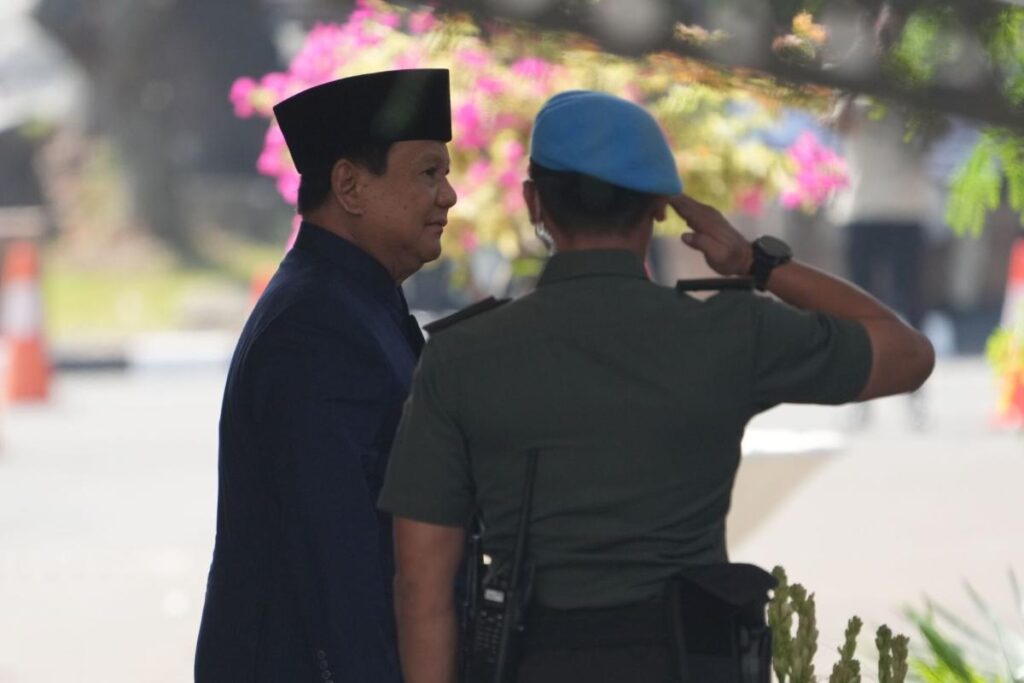Former general Prabowo Subianto was inaugurated as Indonesia’s eighth president, marking an extraordinary comeback after his military dismissal due to alleged human rights abuses. Prabowo, who has had a 26-year journey in politics filled with two previous failed election attempts against former President Joko Widodo, took the oath of office alongside Vice President Gibran Rakabuming Raka. The ceremony took place amid applause from lawmakers and foreign dignitaries, such as Singapore’s Prime Minister and the King of Brunei. In his inauguration speech, Prabowo emphasized the need for bravery and resilience, asserting that Indonesia’s history is a tale of heroism and sacrifice.
In his address, Prabowo articulated ambitious economic goals, including the target of achieving 8% GDP growth annually, and expressed plans to unveil his cabinet soon, with indications of continued fiscal policy through the retention of Finance Minister Sri Mulyani Indrawati. This transition is seen as essential for sustaining Indonesia’s economy, which boasts a $1 trillion size yet has grappled with slow growth and challenges in the manufacturing sector. Prabowo’s administration will need to foster a more robust industrial landscape and stimulate foreign investments to fortify the economy.
Emphasizing national unity, Prabowo formed an alliance with Widodo’s administration to secure the presidency, bringing on Gibran, Widodo’s son, as his running mate. He has also vowed to advance the ambitious $30 billion national capital project on Borneo, a potential diversion from pressing economic initiatives. This coalition appears to have consolidated political power for Prabowo, placing him in a position to govern with a broad base of support. His presidency may thus be seen as a blend of nationalism and pragmatism, with questions raised about the return of more authoritative governance compared to that of his predecessor.
Despite these promising aims, critics are wary about the potential erosion of democratic principles in Indonesia. Prabowo has a controversial past, particularly concerning human rights issues that led to sanctions, raising concerns among observers about the implications of his military background on his presidency. With a political landscape dominated by influential dynasties, including his connection to former dictator Suharto, there are fears of deepening political control and the stifling of opposition voices, which some experts argue would undermine the nation’s democratic fabric.
In his speech, Prabowo highlighted the pervasive issue of corruption within Indonesian governance, a significant concern given the country’s ranking in Transparency International’s corruption perceptions index. He acknowledged the poverty afflicting many Indonesians and described his intentions to tackle corruption head-on, signaling a commitment to improving governmental integrity. Prabowo plans to enhance tax revenues to finance ambitious initiatives, including a noteworthy $29 billion school lunch program aiming to alleviate hunger and boost education.
As Prabowo embarks on his presidency, the expectations are high, both for economic growth and political stability, amidst a backdrop of historical challenges. His administration’s ability to confront corruption and uphold democratic values will be closely scrutinized by domestic and international observers alike. The unfolding dynamics of Prabowo’s governance will ultimately determine Indonesia’s trajectory in the coming years, shaping both its economic landscape and democratic institutions in a crucial period of transition.

